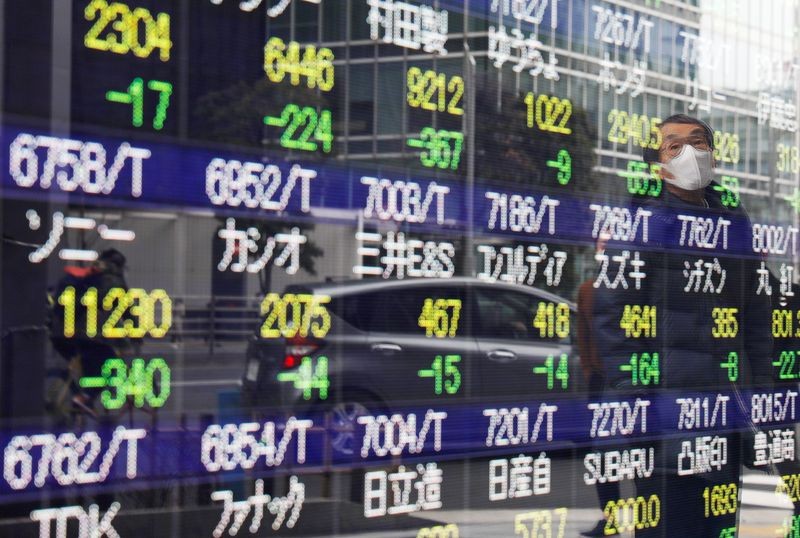Asian stocks mostly rose on Thursday, following gains in U.S. stocks, helped by comments from Federal Reserve Chairman Jerome Powell that interest rates will likely be lower this year. The yen rose to a one-month high against the dollar.
Stocks from Australia to Japan and China rose, lifting regional benchmarks for a second day. The Hang Seng bucked the trend, oscillating at the open. U.S. futures were lower after the S&P 500 rose 0.5% on Wednesday to 5,100 and the Nasdaq 100 gained 0.7%.
The yen traded near a one-month high, having risen below 150 against the dollar yesterday, supported in part by the fastest pace of wage growth since June. The Bank of Japan is under pressure to end its negative interest rate policy, a move most economists expect to see this month or next. The central bank has reportedly received a tacit green light from some government officials for the move, while investors will also be watching for more thoughts from the BOJ when board member Junko Nakagawa speaks later in the day.
Growing expectations of an end to negative interest rates in Japan supported banking stocks today, sending Topix banking shares up 2.3%.
The right time to cut interest
The dollar index fell after falling yesterday when U.S. bond yields fell. The benchmark 10-year index in Asia was flat after losing five basis points to 4.1% in the previous session.
Powell said in his testimony before a House committee that although he does not see an urgent need to cut interest rates given the strength of the U.S. economy, it would likely be appropriate to do so sometime this year.
While Powell did not commit to cutting rates in the near future, his positivity on the path of inflation amid confidence that the central bank's current interest rate may have peaked was enough for market participants, said Jose Torres of Interactive Brokers.
The Fed chairman also said the central bank is likely to dramatically change its plan to require large banks to hold more capital, a move that would represent a big win for big U.S. banks.
Separately, New York Community Bancorp, a commercial real estate lender, received a $1 billion equity investment, limiting the decline in its stock price.
U.S. job data remained strong, with private payrolls posting another strong month of gains in February, albeit slightly below estimates. The Federal Reserve’s Beige Book survey showed the U.S. economy has expanded at a modest pace since the start of the year, while consumers have shown greater sensitivity to rising prices.
China's momentum continues
In Asia, data due includes Australian trade data, Taiwan inflation, Chinese trade and external headwind reports, while Malaysia is to issue a monetary policy decision.
China's annual parliamentary session continues today, with highlights including a press conference by Chinese Foreign Minister Wang Yi scheduled for 10 a.m. Beijing time. Wang's remarks on topics ranging from China-US relations to Taiwan will be of interest.
China's central bank chief told reporters yesterday there was still room to cut banks' reserve requirement ratios, a form of monetary easing, while the country's new top securities regulator warned that authorities would move to fix market failures in extreme cases.
Attention also focused on Chinese technology, with JD.com Inc. rising as much as 9.2% in Hong Kong after the company began a $3 billion share buyback program following revenue that beat consensus expectations.
On the other hand, Bitcoin retreated slightly to trade around $66,000, after touching a record high earlier in the week. Gold stabilized after hitting a record high recently, as gains in the cryptocurrency and precious metals sent mixed messages to market participants.
Oil prices were little changed after rising yesterday, sending West Texas Intermediate crude up 1.3%. Additional tensions in the Middle East included the first confirmed death of a commercial crew member after Houthi militants began attacks in the region.






































